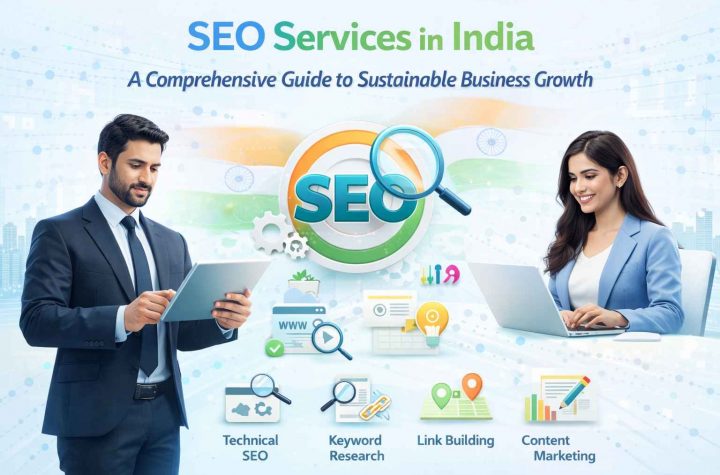
Why do you need these tips to adapt to algorithm changes?
If you work in digital marketing (or you’re learning it), you’ve seen that algorithms shift all the time. Maybe it’s Google updating search rules, or Instagram tweaking feed order. If you ignore those shifts, you might lose traffic, reach, and trust.
I’m writing this for people who take digital marketing training in Nagpur (or anywhere, really) and want to stay sharp. These tips to adapt to algorithm changes will help you move fast, stay relevant, and not feel lost when the rules change.
What “algorithm changes” really mean
Before tips: What exactly do I mean by algorithm changes?
- Search engine ranking factors changing (keywords weight, mobile friendliness, core web vitals)
- Social media feed or story ranking changes (which posts show up first)
- Platform policies, content type preferences shifting (video over text, for example)
- Machine learning updates that reward different behavior
If you know what shifts are happening, you can adapt. If you don’t, you’ll be reacting late.
7 Tips to Adapt to Algorithm Changes Without Losing Your Edge
Here are practical steps you can take. I’ve tried some of these myself; some worked well, others taught me hard lessons.
1. Stay informed about algorithm updates
You can’t adapt if you don’t know what changed.
- Follow trusted sources (blogs, newsletters) that report changes in Google, Instagram, Facebook, etc.
- Join communities—online or in Nagpur—where marketers share what they noticed.
- After an update, test your own content. Did traffic drop? Engagement? Figures tell you early what’s happening.
I once ignored a Google update and lost traffic for a month because I didn’t check the forums. Don’t be me.
2. Diversify your traffic sources
Relying on one platform is risky.
- Use SEO, social media, and email.
- Try other search engines or local directories.
- Make content shareable cross-platform (so if Instagram demotes something, your email or blog still brings in audience).
If Google changes something, maybe Instagram still favors what you do. You stay visible.
3. Focus on quality content anchored in EEAT
When algorithm tweaks happen, low-quality content tends to lose more. High-quality content, especially with real value, tends to hold up.
- Use your experience. Tell stories. Show what you did.
- Use data, cite sources (if needed), but in your own voice.
- Be honest: if you made a mistake previously, say so. That builds trust.
In digital marketing training in Nagpur, instructors who show real examples get better trust than those who only teach theory.
4. Monitor metrics that matter
Don’t obsess over every number. Choose metrics that tell you if you’re losing your edge.
- Organic traffic (search).
- Engagement (time on site, social comments, shares).
- Conversion (did visitors do what you want them to do?).
- Retention (do people return?).
After algorithm updates, some vanity metrics might flip (like impressions). But if your conversions or time spent drop, you need to act.
5. Adapt content strategy quickly
Once you notice a shift, adjust.
- If video content gets favored, try making short videos.
- If long-form articles drop, test medium content.
- If users care about mobile experience, make sure your pages load fast and the design is mobile-friendly.
You don’t need to overhaul everything. Small changes early beat big changes too late.
6. Use feedback loops
You’re not alone. Your audience gives clues.
- Read comments and messages. What are people asking for? What complaints do they have?
- Use polls or surveys. Ask: “Is my content useful to you right now?”
- A/B test different formats or topics.
You’ll see patterns. Maybe people want tutorials over opinion pieces now. You shift.
7. Keep learning, especially locally
When you keep learning, you stay ahead of many who don’t.
- Enroll in digital marketing training in Nagpur or nearby. Real classes give insights into local market behavior.
- Attend workshops and webinars.
- Do small experiments. Try new tools. See what works and what doesn’t.
I remember during a workshop here, someone showed how local SEO shifts mattered a lot for Nagpur businesses. It changed how I did my keyword planning.
Putting it all together
Here’s how you might combine the tips in practice:
- You finish training in Nagpur. You write a blog article.
- You check forums; find that mobile speed now matters more.
- You test your site speed; it’s slow.
- You fix it.
- You promote the post on social media and through email.
- You monitor engagement and bounce rate.
- You collect feedback via a survey.
Stay attentive, make early adjustments, and build with EEAT in mind—this is how you maintain your competitive edge.
FAQs
Q: What are the best tips to adapt to algorithm changes if I’m new to digital marketing training in Nagpur?
You should learn about what algorithms are, follow updates, and build EEAT early. Practice with content. Ask local trainers what’s changed lately. Try small steps like optimizing speed and content relevance.
Q: How often should I review my strategy based on algorithm shifts?
Check every few weeks. When major updates are announced, review them immediately. Your strategy should never be rigid.
Q: Will following these tips guarantee I won’t lose traffic?
No one can guarantee that. But these tips reduce the chance. They help you respond fast. They help you build credibility, so when algorithms change, you don’t fall too hard.
Q: How long does it take to see results after adapting?
It depends. If you change site speed or mobile friendliness, effects might show in a few weeks. If content strategy shifts, it might take months. Keep measuring. Be patient.
You don’t need to fear algorithm changes. You need to respond.
Using those tips to adapt to algorithm changes, you build resilience. You keep your edge.
If you’re doing digital marketing training in Nagpur, take these as core habits. They’ll help far more than chasing every minor update.
Stick close to your audience. Do real work. Keep learning. That makes all the difference.




More Stories
What Is Golf Course SEO and How Does It Work?
SEO Services in India: A Comprehensive Guide to Sustainable Business Growth
Which business directory is best for SEO?